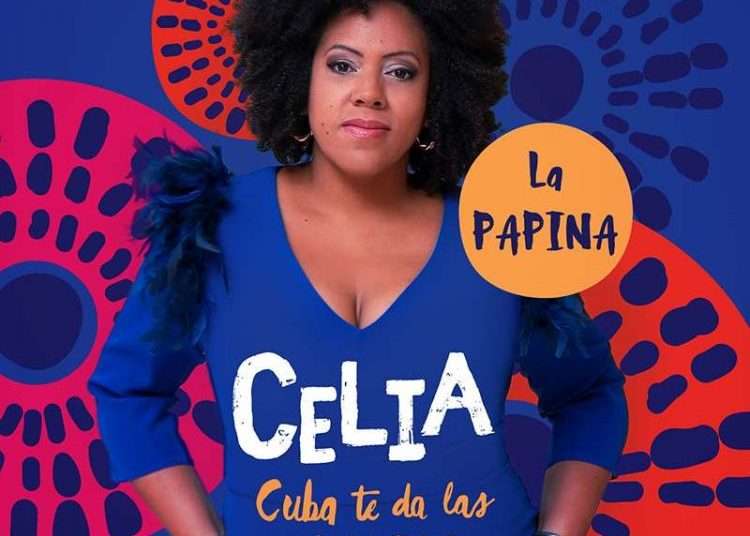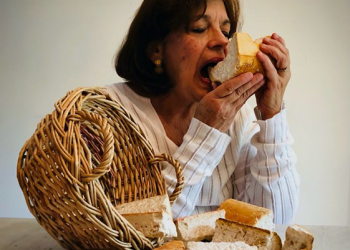“She is not only a rumba and academy percussionist: she is a top percussionist.” Those were the words I heard from the remarkable orchestral director Zenaida Romeu the first time I saw Yuliet Abreu on stage, playing alongside the Camerata Romeu and the great pianist, arranger and director Gonzalo Romeu in a danzón concert. I confess that I was amazed at the mastery of rhythm, above all, of the very special cadence of the danzón that implied a wide knowledge of Cuban music by someone so young. Although all this could be expected from a descendant of the Abreus — one of the legendary families of percussionists and rumberos in Cuba — Yuliet continued to grow, excels as a band leader, as a conguera and as a singer with very unique qualities. She is aware of what she is inheriting and the commitment she assumes: she comes from Los Papines, she is La Papina de Cuba, and she presents Celia, Cuba te da las gracias (Celia, Cuba thanks you), a tribute album to the great Celia Cruz, the first of a Cuban singer of her generation who shouts loud and clear how alive the legacy of La Guarachera de Cuba continues in successive generations.
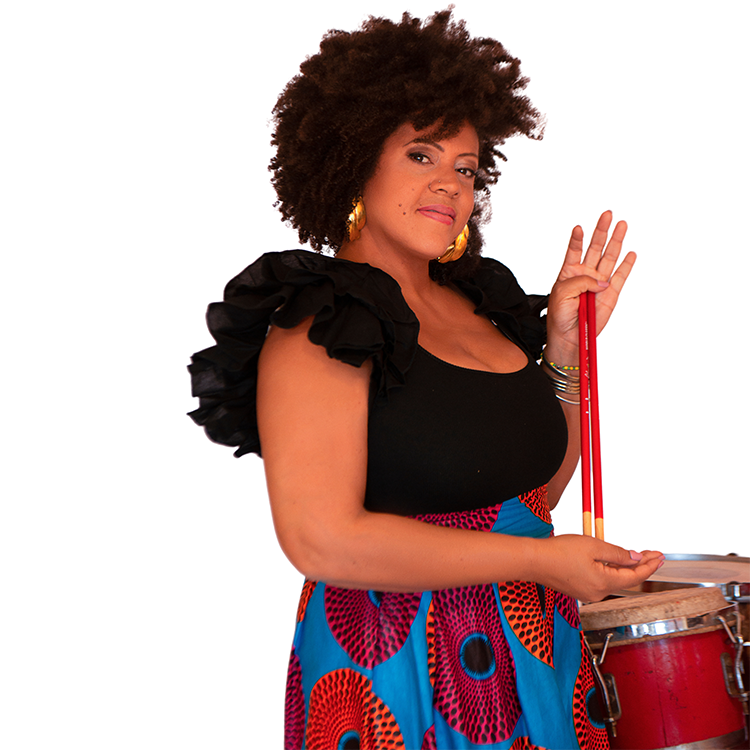
Your first album La Papina de Cuba was your letter of introduction in the world of records. And what a presentation! In it you assume the bolero with several classic songs, in particular, “Tu voz,” by Ramón Cabrera, one of the most extraordinary interpretations of Celia Cruz. Why Celia then and why Celia now? How did the idea of Celia, Cuba te da las gracias come about? What do you propose with this special and careful musical work?
The CD La Papina de Cuba surprised many. It was a dream come true that together with my dear Leandro — who is my husband and producer — I was able to materialize. He was the one who told me: “You have to do something of Celia’s there.” I always worked with my small format in tourist places, and everyone said: “Your timbre is very similar to Celia’s. I hope someone discovers you.” That music of those times is my favorite. At that time, they really sang. And I chose the bolero “Tu voz,” because I saw it in Celia’s series and it fascinated me. Then German Velazco made the masterful arrangement, and I did it!
And then came this album that I now present: Celia, Cuba te da las gracias, which was initially called “Celia y yo.” Omer Pardillo, executor of Celia’s legacy and president of the Celia Cruz Foundation, wrote to Walfrido Rodríguez “Tito,” my manager from the Canary Islands, asking that we please not use Celia’s name because she would not have liked it. Sure, he didn’t know us and, as her executor, he had to safeguard her name. After conversations with him, explaining our purpose, he agreed to support us, seeing that what we were doing came from the heart, with love and respect. Then my manager decided to put “Cuba thanks you.” One fine day, Omer told us: “Well, call it ‘Celia, Cuba thanks you.’” I think that despite everything that is said, La Guarachera knew how to put the name of Cuba high in the world. She deserves it. And this album is made for the 20th anniversary of her death, which will be celebrated next year. It is my humble tribute from my heart.
I just want to sing the music that makes me happy, and the repertoire chosen by all of us was made with a lot of energy and we put our hearts into making this happen. I am happy with the result it is having.
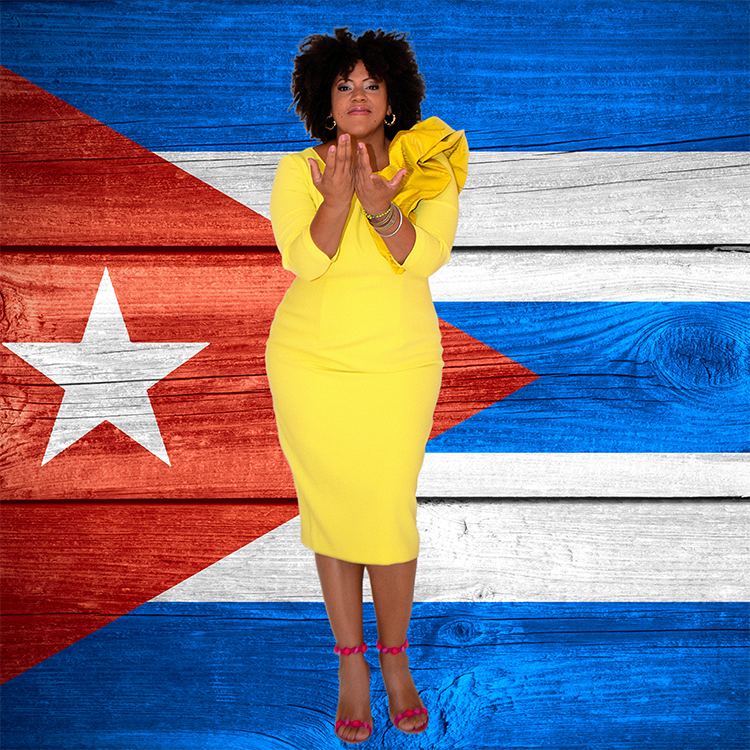
Your dad and uncles knew Celia, mainly Papín, who was a percussionist in the Tropicana orchestra at the time when Celia was also a star in Rodney’s shows. I understand that Celia liked the work of Los Papines. What connection do you feel with Celia Cruz? If you do, how do you explain it? Where does this bond between you two come from?
Celia is part of my life. I feel a special connection with everyone who made music in her time. My dad always listened to her and therefore so did I. I think there is something magical between us. Although I didn’t know her, her style of interpreting is also the pattern that I have followed without imitating, since I am a percussionist by profession. My father always instilled in me to be a musician and an artist. I feel so free when I sing! And for me singing is like talking. When you achieve that, that’s when you are interpreting. I think that’s what people like about my voice; and the timbre resemblance, well I don’t know…I didn’t look for it or imitate it…it came out perhaps, because she, like many from that time, lives in me.
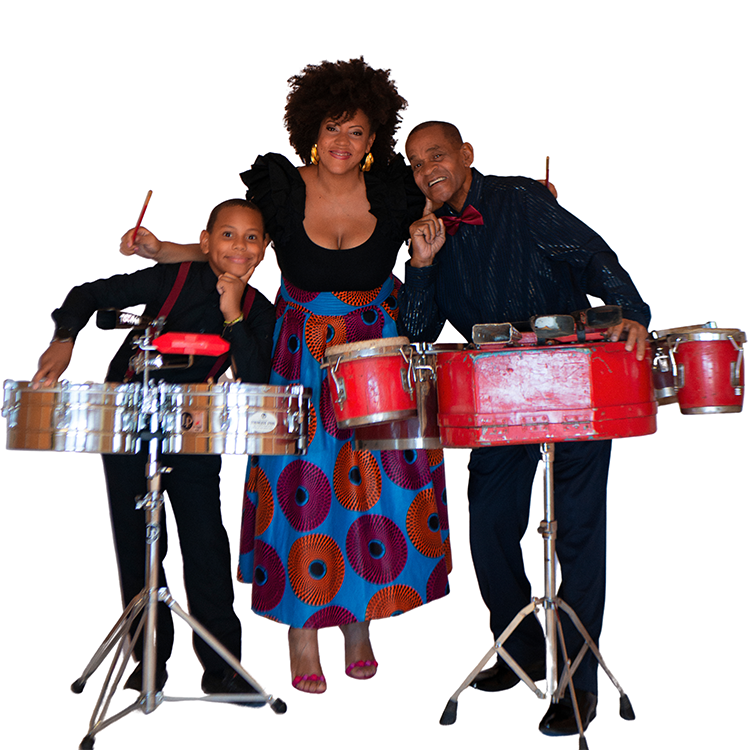
Since your first album and in your live performances, it is evident that you have continued, like no other descendant of the legendary Abreu family, the path of your father and your uncles in percussion. Tell me about how your passion for percussion and rumba arose and developed, because it was not foreseeable that the Jesús’s girl would take over the conga drums.
I was born with percussion, I think. Ha, ha. I was discovered by my piano teacher, Elena Tio Madrigal, and she herself took me to do percussion aptitude tests. The rumba was my day to day. Although I confess that in those days Los Papines were never in Cuba, since they toured internationally, it was a surprise for dad that I entered the conservatory precisely to study percussion. Then, in my 2nd year at the University of the Arts, my uncle Alfredo died, and my cousin Luisito — Luis’s son — and I became part of Los Papines. It was very difficult. Above all, the acceptance of a woman within Los Papines, which was always a group of men
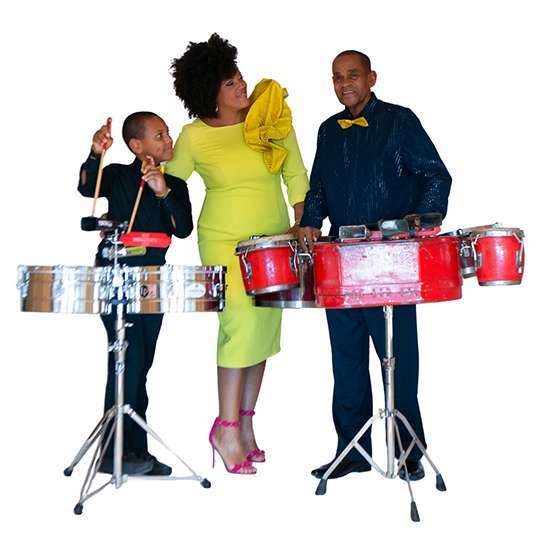
But in addition to taking the step forward, you continue to vindicate the legacy of Los Papines, of the mythical Abreu brothers, in a job that unites three generations: your dad Jesús, and a complete prodigy: your little son Alan Yael. It’s amazing how at only 5 years old he plays various percussion instruments, and in particular the way he follows the rhythm on the bongo. Tell me about their participation with you in “Yo viviré.” Why did you choose it? It suggests to me that it is a declaration of your intentions to keep alive the legacy of Celia and that of Los Papines.
From a very young age, my son loved to play. His father had bought him a small conga drum, and, to our surprise, he alone decided to play in public at our usual Papines gatherings, and to this day he accompanies us. He loves music and being by his mom’s side. Today, at the age of 9, he is sure that he wants to be a professional musician. My father, what to say! He lives proud of his musician grandson. “Yo viviré” is a song that I wanted to do, because of its high level of interpretation. It is a very heartfelt piece. What better than this theme to carry it in the style of Papines, this time from the 3 generations. It was also my husband’s idea. We rehearsed it together with my band, until it was constituted, always with the approval of my father. Without him, nothing!
Alan already feels like a musician. Of course, I went on a tour to the United States with him when I was already 2 months pregnant. Then I returned to Havana, and we did a national tour. All of this, I believe, made him feel impregnated with music from my belly. I never stopped working when I was pregnant. I remember that I did the last concerts barefoot, because the weight did not allow me to wear flashy shoes anymore. When my cesarean was performed, only a short time passed and I started working again, almost with him in my arms, because I did the concerts while someone took care of him. My mom, his dad and many supported me in this.
The Papines family will not die. Much remains to be done. Perhaps now each one from his position, but as a family, we will all maintain the family legacy. My father simply decided to support us in this mission to somehow preserve the creativity and originality that Los Papines always had. This time from the 3 generations.
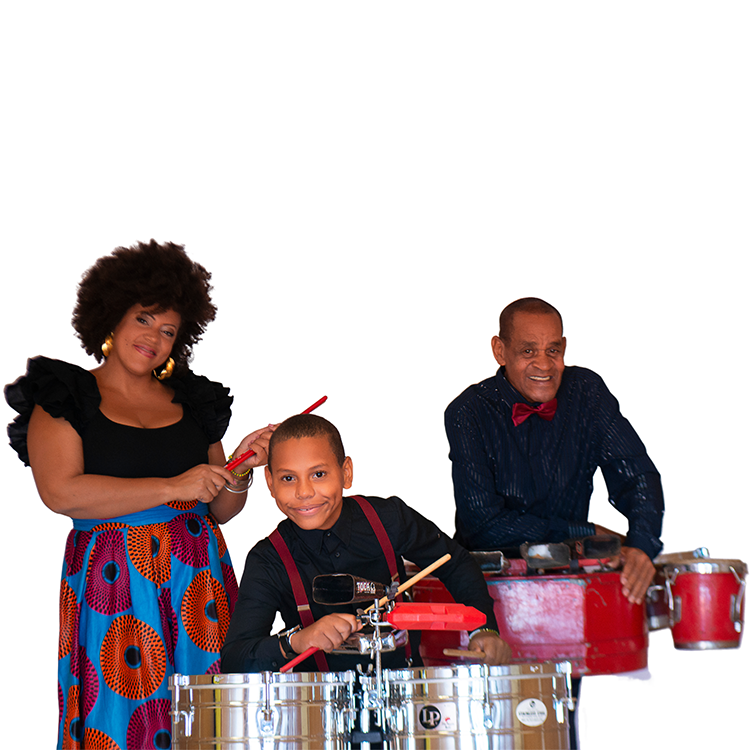
Tell us about the process of preparing the album Celia, Cuba te da las gracias. How did you choose the songs to record, the musicians you would call, the arranger and musical director? To what extent did you work together, how involved were you in directing? How has the relationship with Innovarte Records been in this ambitious and happy project?
Walfrido Rodriguez, “Tito,” at the head of Innovarte Records, is someone who, like me, loves Celia’s music. We showed him part of my work and when he heard “Tu voz”, as they say here in Spain, he freaked out. That’s where the idea of recording 4 songs initially was born. Tito started choosing the repertoire doing an analysis of the music that she popularized. Little by little we were recording, first 4 songs then 5 more. But I felt that a sensible and softer song was needed, we had many classic songs and guaracheros like her. One day on Facebook I saw a post from someone I follow with the theme “Cuando estoy contigo,” by Armando Manzanero. There I said: “This is the song that was missing from the album!” I called my student Raymond Y. González, a percussionist graduated by me and who has become my musical right-hand man, and he was the one who, at only 25 years old, made all the arrangements for the album. I told him: “I want to do this song” and with the talent that characterizes him he immediately wrote the harmony, and it was recorded. Many will not believe it: the album was recorded in 5 days. Only when you work with your heart and together does such beautiful music come out. I loved the whole process. I thank Raymond, Leo and Tito for trusting me, helping me and supporting me, and to all the musicians who were there: those from my band, musicians from Habana de Primera; Andy García, Alain Pérez’s pianist and personal friend; guests like guitarists Reinier Mariño and Dayron Ortega, the tres player Olivia Soler, Roberto Vázquez Ley, an excellent bassist and friend, and the great Alexander Abreu who gave me the trumpet solo in “Chango ta vení,” almost unexpectedly and with great humility.
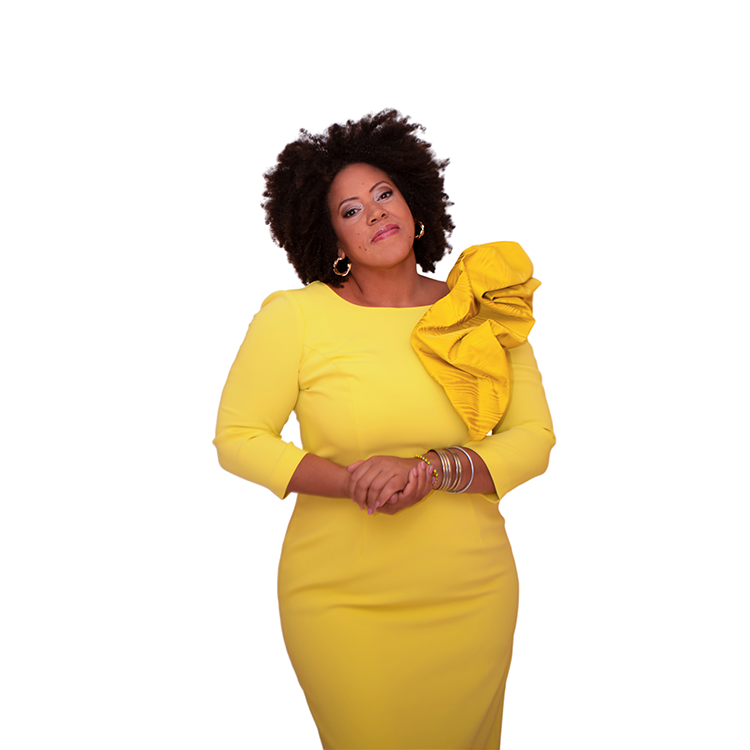
The album Celia, Cuba te da las gracias collects the sound and energy of the show with which you launch it on the international market. Tell us about the show. How have you articulated it? On a stage level, how do you excel as a singer and percussionist?
My entrance in Papines was precisely for that: to work as a singer and percussionist. I had to exploit that possibility. It was also time to make music once again with my son and my father and I simply combined to do it through 3 generations in a different way, with the tribute to Celia Cruz, where we all made an effort for the show to go through various instruments of percussion. my husband’s idea, he really has a magical vision of the show
What are your plans with the album and the show? International tours? Concerts?
I try to honor La Guarachera in a different way. I am very grateful to God, to Oshún and Changó, my Osha parents, for always being with me. To my godparents, my husband, my father, my musicians, my arranger. To José Raúl Varona, recorder and masterizer, to Abel Ferro who designed the cover, to the entire production team that accompanies me. In particular, to Omer Pardillo for his unconditional support in this project. To Innovarte Records and its entire team for their trust, and to all those who, in one way or another, in Havana, Tenerife and Madrid, have had to do with this dream come true, in particular the GF Victoria Hotel, which opened its doors for the world premiere. Anyway, sorry if I have left someone out. With the launch on October 21 of the first song, “Yo viviré,” we already began to expand around the world with this simple, but very heartfelt tribute to the great Celia Cruz.

